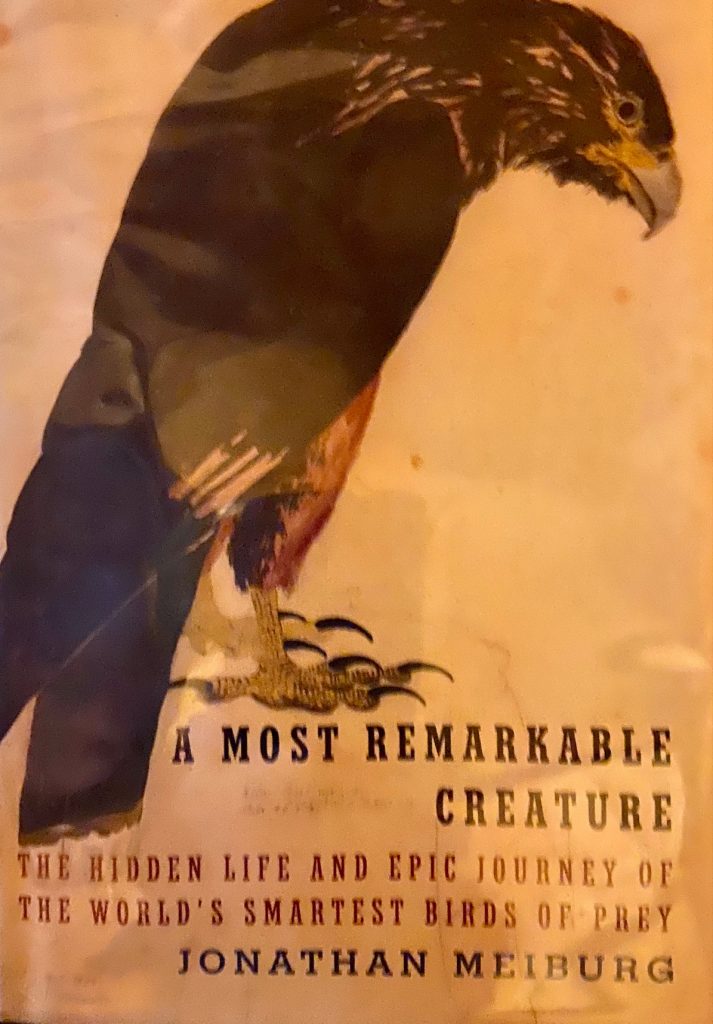Jonathan Meiburg’s book A Most Remarkable Creature traces what is known about Caracaras birds of prey presenting a broader view of the intelligence and consciousness of birds, changing how we might think of them. Kind of what I experienced in the garden, in my case for me to learn see the birds as my companions, conscious of me, and through that for me to be more conscious of them as separate from me, having their own life, and that life of theirs bound indelibly with mine. See pp 107-110.
And pp 258-259: Meiburg begins with a quote of William Henry Hudson, whose writings are often referred to in Meiburg’s book: ” ‘The power, breath and grace of the wild creature, its perfect harmony in nature, the exquisite correspondence between organism, form and faculties, and the environment, with the plasticity and intelligence for readjustment…thus amidst perpetual mutations and conflict with hostile and destructive forces, to perpetuate a form, a type, a species for thousands and millions of years!’ … To the last Hudson remained wary of the closed spheres of expertise, feeling that only imagination and curiosity could reach beyond their borders. ‘One must shake off the curse of books,’ [Hudson] wrote, ‘ the delusion that they contain all knowledge, so that to observe and reflect for ourselves is no longer necessary.’ This reverence for the unknown often drew [Hudson] back to the mysticism of his early life, and in the end he felt that a sense of nature as a vast and secretive intelligence was something to be cherished and not outgrown. No matter how much he learned about its inner workings, the world beyond the knowledge and concern of human beings called to him…’The main thing,’ [Hudson] concluded, ‘was the wonderfulness and eternal mystery of life itself; this formative, informing energy -this flame that burns in and shines through…which in lighting another dies, and yet dying endures forever.’…This was [Hudson’s] greatest theme: that only by looking to the nonhuman world, with all the tools of science and art, can we see what we really are -and that we aren’t as alone as we feel.”
And p 260 Jonathan Meiburg reports on a conversation with Paleontologist Julia Clarke as they were returning from a remote fossil-finding expedition: “as we walked, Julia noted how good it felt to [have escaped] the clutches of the internet, and how hard it is to avoid the trap of thinking that everything worth knowing is a Google search away.”

- See the Post From the Back Deck
- See the Post A Surprising Experience While on the Back Deck